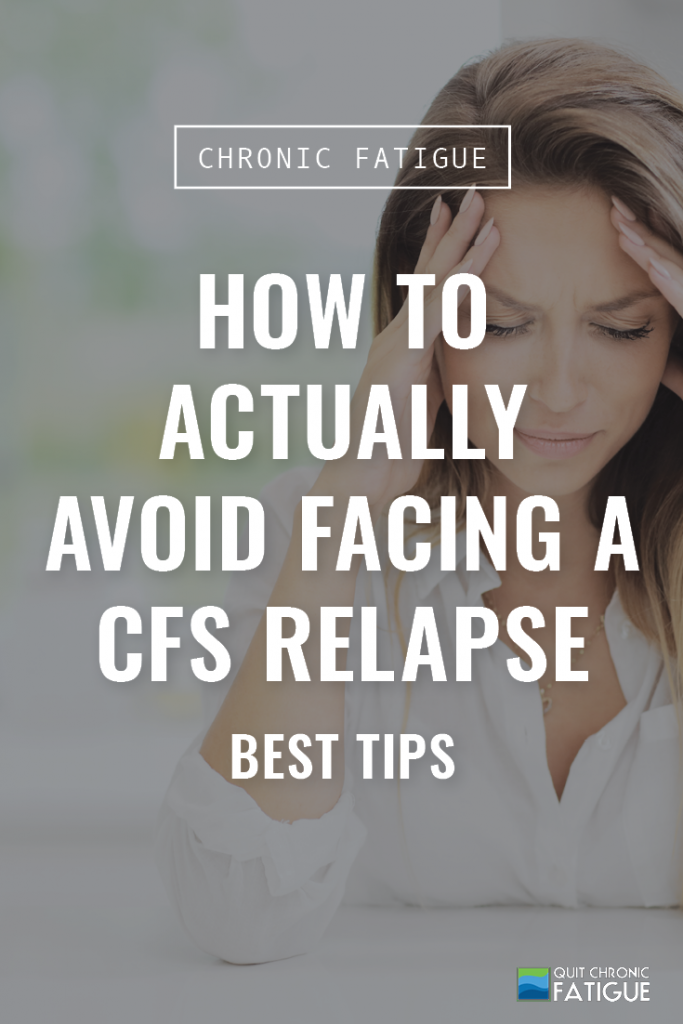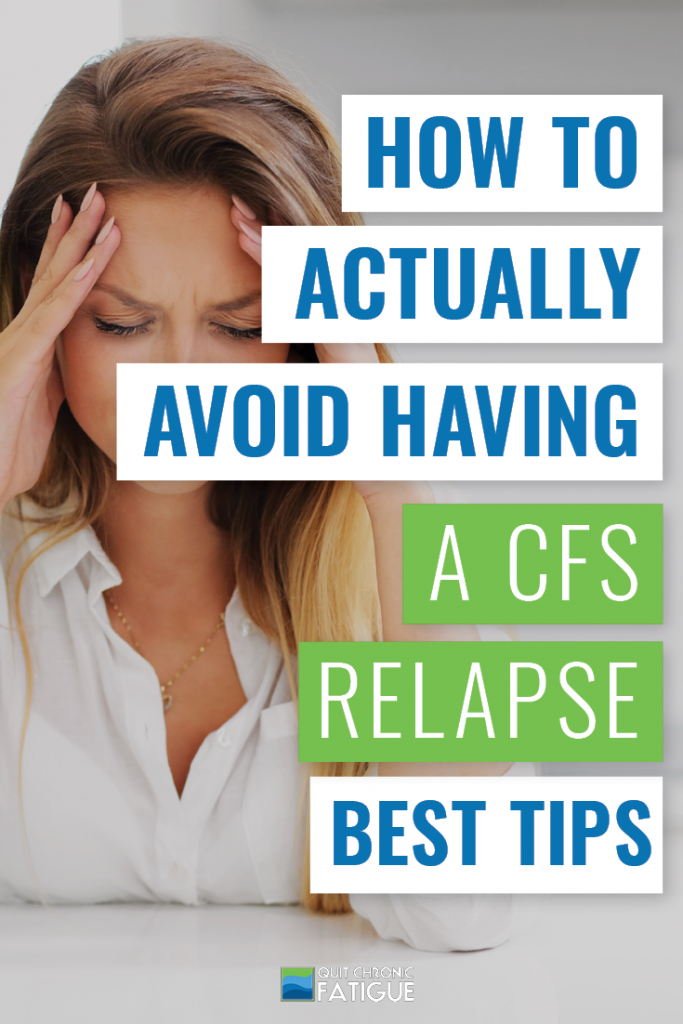If you’re living with CFS, you already know that a CFS relapse can be painful, demoralizing, and way too common.
You have the ability to react and reduce the effects of your CFS flare-ups and relapses. By learning to recognize when a relapse is on the horizon, you can take steps to minimize the damage.

What Is a CFS Relapse?
CFS/ME can be difficult to deal with because your symptoms will fluctuate. Sometimes you’ll feel absolutely fine. Other times, you’ll experience a flare-up or relapse. This means that your symptoms intensify for a period of time.
Unfortunately, dealing with a CFS relapse is inevitable—at some point in your CFS/ME journey, you’ll experience one. But hopefully, you can learn to recognize, avoid, and cope with them.
In the same way that your symptoms tend to move through a cyclical pattern, relapses can be cyclical too. Short relapses, which tend to last for just a couple of days, are commonly called flares. Flares tend to be caused by acute emotional stress or overexertion.
A full relapse, on the other hand, may last for days, weeks, or even months. The length of time varies by the relapse’s cause, management, and severity. When you experience a flare or relapse, it can be helpful to look for causes.
What changes to your routine did you experience in the days leading up to your relapse?
Unfortunately, sometimes the cause is impossible to determine. The majority of relapses occur spontaneously.
No matter how well you behave, how closely you adhere to your doctor’s suggestions, sometimes a relapse is inevitable.
How to Minimize The Impacts of a CFS Relapse
A CFS relapse can be devastating to both your physical and mental health. If you can catch it coming on, you may be able to reduce its effects. Here’s how.
Add More Rest To Your Day
One of the most effective strategies for dealing with a CFS relapse is simply to rest. Spend extra time resting until you have gotten through your flare or relapse. It isn’t always easy, but it is necessary.
If your body is telling you to rest, regardless of what you have planned, listen. Your body knows best.
Your plans can wait. You’re not lazy. You’re not flaky.
You are dealing with a chronic illness.
Focus On Alleviating Symptoms As Soon As They Begin
The moment you identify the symptoms of a CFS relapse, act. Taking steps to alleviate your symptoms quickly can reduce the length of your flare or relapse.
You know your body best, so you can learn to recognize the indicators of a potential flare-up.
When you feel your symptoms coming on, take steps you know help you.
The steps you’ll take will be different depending on your needs. Maybe you need to immediately go to bed and lie down. Maybe you need to do some breathing exercises.
If you can catch your flare-up early, you can make things easier on yourself.
Prioritize Time-Management
When you’re dealing with a CFS relapse, you may need to change your plans. This often means spending extra time resting and avoiding stress. Unfortunately, having to change your plans to prioritize rest can be stressful on its own.
That’s why learning how to prioritize important tasks (and let go of the less important things) is essential!
When you recognize that flare-ups are a real possibility, you want to spend the active hours you have focusing on the things you need to get done. But doing too much can cause overexertion and set you back—it’s a fine line to walk.
You won’t always be able to do everything. Make the most of the time you do have and become comfortable with prioritizing your wellbeing.
Don’t be afraid to ask for help! The people who care about you want to help you, so let them. They will feel better, and your life will be easier—it’s a win-win!
Get Prepared In Case You Do Experience a CFS Relapse
Prepare for the occasional CFS relapse by having a plan in place. When you have a plan, you’ll experience less anxiety around the possibility of a relapse or flare-up.
This might mean prepping some nutritious food or reorganizing your room so the things you need are easily accessible. Here are some ideas for quick meals if you experience a CFS relapse.
Incorporate Pacing
Pacing is one of the most common strategies for dealing with a CFS relapse.
Being able to pace yourself allows a sense of stability. Recognizing the limits that your illness brings and working within them gives you a sense of control.
There are many strategies for pacing yourself appropriately.
You can break up tasks into small blocks of time, with rests in between. This works for both physical and mental activities. Smaller periods are more manageable than trying to do everything at once!
Balancing your activities and, we can’t stress this enough, planning for rest, lets you accomplish more when you’re feeling good. Working within your limits also lets you plan a stable and realistic schedule.
Having a daily routine can help with this!
Track Your Experience and Keep Detailed Records
Keeping a regular journal or log of your symptoms can help you avoid a CFS relapse.
When you keep a detailed log, you can start to identify your limits. That way, you can figure out what level of activity works for you and how much is too much. This will also help you identify your triggers.
Keeping a log can also motivate you! When you clearly see the connection between overactivity and your symptoms, you’re less likely to push past your limits.
Listen To Your Body, All The Time
The temptation to “push through” your symptoms may always be there, but you know it’s not the best choice.
Instead of fighting your body, try listening to it instead. Your body knows best!
Knowing when to back off instead of pushing through reduces the impacts of a CFS relapse.
Your body will send you warning signals when you’re doing too much. Your job is to learn to recognize and listen to those signals!
When you’re living with CFS, experiencing flare-ups or a CFS relapse is a natural part of the cycle.
The majority of flare-ups have very little to do with your daily activities and are not your fault. Fortunately, there are steps you can take to minimize their effects and proactively safeguard your mental and physical health!





